Profile: Chai Patel who fled Uganda as a teenager and is now boss of HC-One
Chai Patel says he is an "eternal optimist" and this is not surprising when you look at his meteoric rise from arriving in Britain as a poor immigrant to becoming the chairman of the third biggest care home provider in the country.
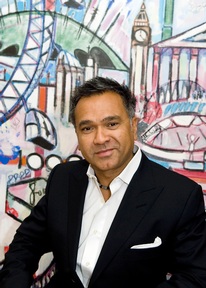
Chai Patel was born in Uganda, but left the country when the Ugandan Asians were thrown out, during the despotic rule of Idi Amin.
After spending a few years in India, his family moved to Britain where he spent his teenage years on a London council estate where his parents ran a small corner shop.
With the odds seemingly stacked against him, it seems remarkable that today Dr Patel is the chairman of HC-One which runs 241 care homes in Britain.
HC-One was formed last year, when it took over a third of Southern Cross’s homes after the company collapsed under £50m of debt.
It was a bold move by the entrepreneur, Dr Patel, who says taking over the controversial Southern Cross care homes was "an Everest I wanted to climb".
Dr Patel has had a very successful career.
He began working in the NHS after training to be a doctor but left to work in the City. In 1988 he founded Court Cavendish, a long-term care services business.
"The highlight of my career was building up Court Cavendish from two people into a large company which culminated in Care First, the UK’s largest continuing care company," he says.
CareFirst Group was acquired by Bupa in 1997.
In 1999 he was awarded a CBE for his services to the development of social care policies.
Dr Patel is also well known for being former chief executive of the Priory Group which runs the Priory rehab clinic, famous for treating celebrities such as Kate Moss and Jade Goody.
He resigned from this role in 2007 and re-established Court Cavendish. Yet it is HC-One of which he is most proud.
"I am indeed proud of setting up HC-One in 94 days and creating a new vision for care homes that were so embattled. I am also proud of the ‘residents’ handbook’ that we produced back in the late 1980s for Court Cavendish.
"That handbook was a promise to our residents of what their rights would be and it was a commitment to a certain standard of care. It was taken up by the regulators at the time as an example of best practice. I feel proud that, having returned to the care sector, I have seen our handbook once again embedded in the fabric of care homes," he says.
Dr Patel formed HC-One and took over the management of one-third of the Southern Cross care homes because he says: "I felt it needed to be done. I wanted to prevent residents’ care being disrupted and I felt not to have done so would have had too many consequences. It was something I felt I really had to do.
"Of course, I felt daunted by the prospect of taking over the homes but it was an Everest I wanted to climb. There was very bad press around the time of the Southern Cross collapse, yet the majority of the staff were doing an excellent job."
When Dr Patel and the management team of HC-One took over Southern Cross care homes, they made a decision.
"We wouldn’t talk about the past but about what we would do from here on. This is why we focus on running the ‘kindest’ care homes in Britain. We carried out a very detailed review of all the 241 care homes we took over from Southern Cross and every home has been examined by our internal quality inspection team.
"We have also reviewed all our policies and have been working with the managers and staff as to what ‘kindness’ really means. We are redeveloping our training programme and have spent a lot of time engaging with residents and relatives, we are on our way but we have a long way to go.
Southern Cross didn’t set out to be a bad company - it was just things that happened at individual homes."
HC-One, like many other care home providers, is currently under strain as around eighty per cent of its residents are funded by local authorities, which are being forced to reduce their adult social care costs.
Working in the social care sector is “very hard at the moment,” according to Dr Patel.
"We are at a very dangerous point where funding is being cut at a time when there are significant increases in costs and care workers are being employed on only just above minimum wage. These are very serious issues. Funding is being constrained and it should be more commensurate to the care that is needed out there," he says.
The issue of pay for care workers was recently highlighted on the Channel 4 programme Undercover Boss which showed HC-One’s managing director, Pam Finnis, going undercover to investigate standards of care at its care homes.
Ms Finnis broke down in tears when she found that a senior care worker was on such low wages, he couldn’t afford to pay his phone bill.
She also worked on a night shift where the low ratio of staff to residents meant the overstretched night shift staff were unable to respond immediately to residents' calls for help.
The programme got a mixed reaction on Twitter with some saying it was brave to let cameras into a care home after the furore over the Winterbourne scandal last year and the Panorama exposé this year. Others called it a publicity stunt and criticised Ms Finnis for being unaware of the low wages of her staff.
At the end of the programme, Dr Patel agreed to bring forward a pay review of staff in the care homes as it is an issue that needs addressing.
Dr Patel decided it would be good for the company to take part in the programme because it "provided us with an opportunity to counter some of the misunderstandings that exist about care as well as an opportunity to show to the wider public the hard work and kindness that goes on every day across Britain."
He believes "this programme approaches the care sector in a very balanced, fair and sensitive way" and said: "It highlights some amazing people, as well as the continued challenges we face with the mission we started on 1 November 2011 when we stepped in."
Dr Patel is no stranger to TV documentaries having himself appeared on the Channel 4 show Secret Millionaire last year.
His decision to take part was bound up with the philanthropic work he does.
"At the age of 50, I decided I would form a foundation and do something that was not for profit. So I set up the Bright Futures Trust (which helps children and young people who are in challenging circumstances) and I spend half of my time on non-profit activities. I decided to do Secret Millionaire as any programme that celebrates philanthropy is important. The programme focusses on the incredible heroes out there that who are doing tremendous work."
Dr Patel admits he underwent a whole gamut of emotions whilst doing the show.
"It was everything from harrowing to frightening. I stayed on a housing estate where there had been a murder up the road from where I was living and that was very scary. It was very tough taking part in the programme.
"The physical environment was quite threatening. It was sad to meet people who had made one mistake and their lives had just spiralled out of control. For some it is just a circle of deprivation. It was a real eye opener for me and awakened me to the deprivation and level of need that is out there. I was saddened by what I saw and found I was quite emotional."
Dr Patel recently experienced another emotional high when he carried the Olympic Torch on the final week of its journey to the opening of the London 2012 Olympic Games.
He was nominated to carry the torch because of his longstanding support of Team 2012, the fundraising programme for up-and-coming British athletes.
Dr Patel called it a "huge honour" and an "unforgettable experience" and said: "I can’t express how proud I am to have been asked to carry the Olympic Torch.
"Since 2005 when London won the bid to hold the 2012 Olympics I have been excited for the opportunities it brings to our country and our Olympians and Paralympians." Having completed his leg of the Torch relay, Dr Patel will be sending the torch on its own journey around HC-One care homes.
As for the future, he is going to concentrate on HC-One and his philanthropic work.
"I want to establish HC-One as a caring organisation and expand its services and I want to build on the work at the Bright Futures Trust," he says.
Interesting facts
Name: Chaitanya Patel
Family: Wife and three daughters
First job in health and social care: Houseman at Royal Hampshire County Hospital in 1979
Favourite book: The Alchemist
Favourite film: Spartacus
Favourite piece of music: Theme from Blade Runner
Last holiday: Spain
Latest Profiles News
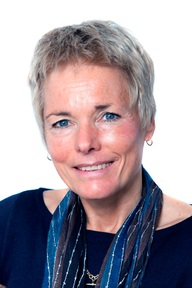 05-Sep-16
Being chief executive of a care home provider is a 'huge responsibility and privilege'
05-Sep-16
Being chief executive of a care home provider is a 'huge responsibility and privilege'
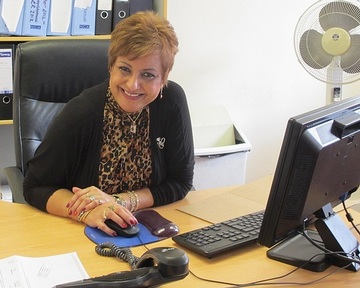 31-Mar-15
Profile: 'Both local and national Government needs to put its money where its mouth is,' says chair of the National Care Association
31-Mar-15
Profile: 'Both local and national Government needs to put its money where its mouth is,' says chair of the National Care Association
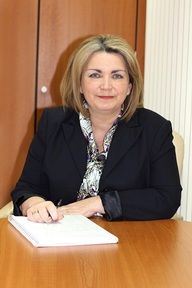 16-Dec-14
Profile: Care home turnaround specialist reveals some of the tricks of the trade
16-Dec-14
Profile: Care home turnaround specialist reveals some of the tricks of the trade
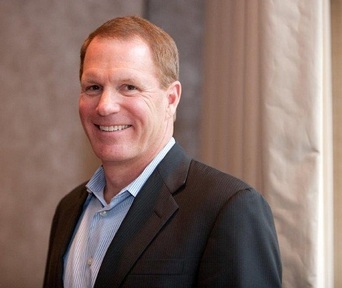 01-Dec-14
Profile: ‘People should not be dreading going into a care home – they should be looking forward to it,’ says care home boss
01-Dec-14
Profile: ‘People should not be dreading going into a care home – they should be looking forward to it,’ says care home boss
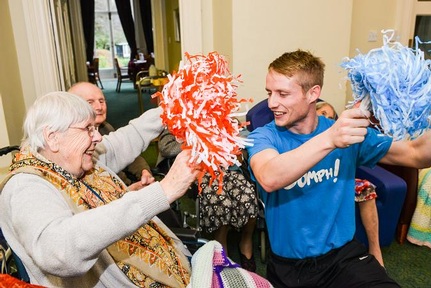 07-Oct-14
Exercise is key to 'changing the care sector' says provider of exercise therapy in care homes
07-Oct-14
Exercise is key to 'changing the care sector' says provider of exercise therapy in care homes